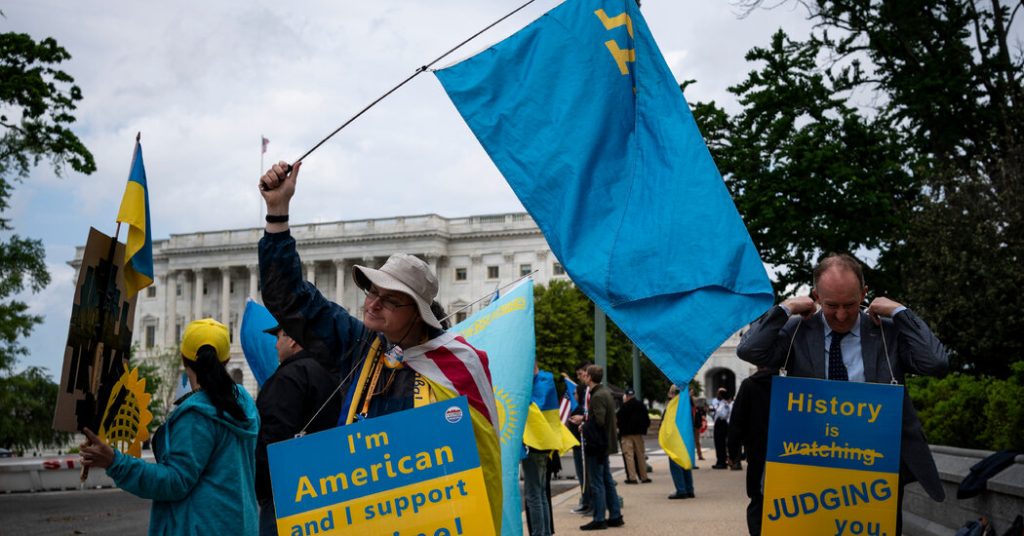The House vote on Saturday to provide $61 billion in American aid to Ukraine highlighted the division within the Republican Party when it comes to foreign policy. While more Republicans voted against the aid, showing the influence of former President Donald Trump’s isolationist stance, some backed the assistance as being in the best interest of the United States and national security. Pro-Trump allies in the House, such as Representatives Marjorie Taylor Greene and Matt Gaetz, led efforts to block the aid, with some expressing disdain for supporting Ukraine due to conspiracy theories surrounding the 2016 election.
Former President Trump, although known for his isolationist foreign policy views, had softened his opposition to Ukraine aid in the lead-up to the vote. Despite remaining relatively quiet on the issue, he had previously called for European countries to contribute more to help Ukraine, questioning why the United States was shouldering the burden. However, his stance on foreign policy has not always aligned with mainstream Republicans, as demonstrated by his discussions about potentially withdrawing the U.S. from NATO, an idea that drew bipartisan backlash.
Ahead of the House vote, Trump tried to straddle the line by acknowledging the importance of Ukrainian strength while also questioning the amount of aid being provided compared to Europe. Certain Republicans, citing the precedent set by former President Ronald Reagan, argued that supporting Ukraine against Russia was crucial for American interests and security. However, some pro-Trump Republicans, including those from the hard-right Freedom Caucus, went against the aid package for Ukraine and also opposed military aid to Israel, further illustrating the party’s divisions.
For Trump, the aid package’s passage was a setback as it did not align with his preference for framing aid as a loan or his focus on border security. Despite his claims that under his leadership, the war in Ukraine would not have occurred or would be swiftly resolved, the resumption of large-scale military aid from the U.S. suggests the conflict will continue past the November elections. Trump’s attempts to link aid to other issues, such as requiring European countries to match U.S. contributions, were not achieved, highlighting his diminishing influence on foreign policy within the party.
Going forward, the vote on Ukraine aid highlighted both the deep divides within the Republican Party and the lingering influence of Trump on its foreign policy stance. While some lawmakers are supportive of providing aid to Ukraine as a strategic move against Russian aggression, others, especially those closely aligned with Trump, remain skeptical or outright opposed. Trump’s attempts to keep his distance from the vote demonstrate a strategic move to protect his image and avoid any potential backlash, as well as to keep focusing on his core message to voters that only he can resolve complex international issues like the conflict in Ukraine.


